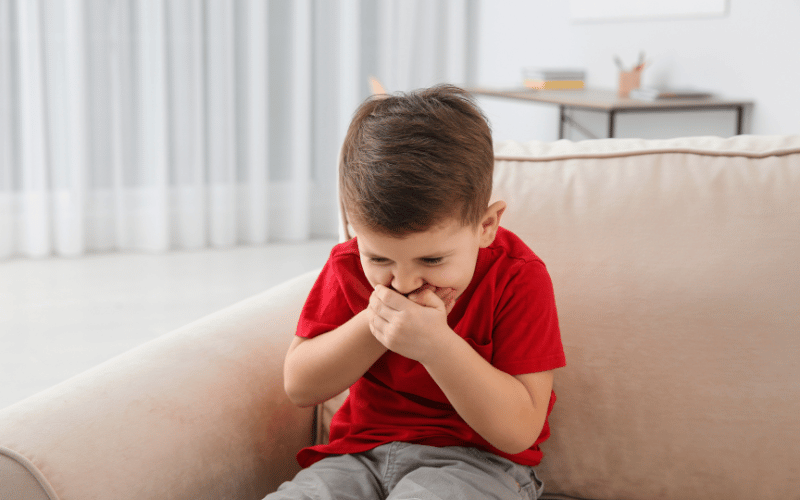Symptom 9: Nausea or Vomiting

When discussing IBS, nausea often takes a back seat to other more prominent symptoms. However, for children, this sensation can be just as distressing. Unlike other occasional triggers for nausea, such as motion sickness or minor infections, the nausea experienced by IBS sufferers has a different origin. It’s closely tied to the digestive turmoil in the gut. The exact mechanism remains a subject of research, but many theories link it to slowed gut motility or specific food intolerances.
Beyond the physical, there’s a psychological component to nausea in IBS. Children, aware of their condition and its unpredictability, can develop anxiety around eating or being in unfamiliar settings. This anxiety, in turn, can manifest physically, exacerbating the feelings of nausea or even leading to actual vomiting. The cycle of anxiety and nausea can be vicious, making it challenging to pinpoint where one starts and the other ends.
While nausea is more prevalent, some children with IBS might experience vomiting. It’s essential to distinguish this from regular bouts of vomiting linked to infections or other illnesses. In the context of IBS, vomiting can follow extreme bouts of nausea. Though less common, it’s a distressing symptom that can have significant implications, from dehydration to the emotional distress of unexpected episodes.
There’s a silver lining: numerous strategies can help manage and reduce these symptoms. From a dietary perspective, identifying and avoiding trigger foods can minimize the gut’s adverse reactions. Natural remedies, like ginger tea or peppermint oil, have been touted for their anti-nausea benefits. Relaxation techniques, including deep breathing exercises and meditation, can also help in managing anxiety-induced nausea.
For persistent symptoms that don’t respond to dietary or natural interventions, it might be time to consult a healthcare professional. They can provide insights into the root cause of the nausea, recommend tests if necessary, and suggest medications to manage the symptom. Anti-nausea drugs, therapies, and counseling sessions can offer relief, allowing children to regain a sense of normalcy in their lives. (9)